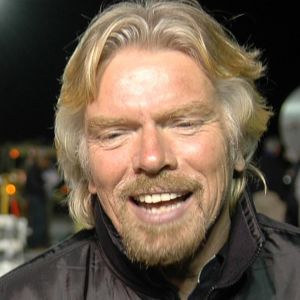Want to know what books Irina Marinescu recommends on their reading list? We've researched interviews, social media posts, podcasts, and articles to build a comprehensive list of Irina Marinescu's favorite book recommendations of all time.
1

How do successful companies create products people can’t put down?
Why do some products capture widespread attention while others flop? What makes us engage with certain products out of sheer habit? Is there a pattern underlying how technologies hook us?
Nir Eyal answers these questions (and many more) by explaining the Hook Model—a four-step process embedded into the products of many successful companies to subtly encourage customer behavior. Through consecutive “hook cycles,” these products reach their ultimate goal of bringing users back again and again without... more How do successful companies create products people can’t put down?
Why do some products capture widespread attention while others flop? What makes us engage with certain products out of sheer habit? Is there a pattern underlying how technologies hook us?
Nir Eyal answers these questions (and many more) by explaining the Hook Model—a four-step process embedded into the products of many successful companies to subtly encourage customer behavior. Through consecutive “hook cycles,” these products reach their ultimate goal of bringing users back again and again without depending on costly advertising or aggressive messaging.
Hooked is based on Eyal’s years of research, consulting, and practical experience. He wrote the book he wished had been available to him as a start-up founder—not abstract theory, but a how-to guide for building better products. Hooked is written for product managers, designers, marketers, start-up founders, and anyone who seeks to understand how products influence our behavior.
Eyal provides readers with:
• Practical insights to create user habits that stick.
• Actionable steps for building products people love.
• Fascinating examples from the iPhone to Twitter, Pinterest to the Bible App, and many other habit-forming products. less 
Matt MullenwegHooked gives you the blueprint for the next generation of products. Read Hooked or the company that replaces you will. (Source)

Raluca RaduIn terms of business, some of the must-read books I would mention are Hooked by Nir Eyal, Web Analytics: An Hour A Day by Avinash Kaushik, Call To Action and Always Be Testing by Bryan Eisenberg, Epic Content Marketing by Joe Pulizzi, How To Build Websites That Sell by Peep Laja, Content Chemistry by Andy Crestodina. (Source)
2

For twenty-five years Dan Lyons was a magazine writer at the top of his profession--until one Friday morning when he received a phone call: Poof. His job no longer existed. "I think they just want to hire younger people," his boss at Newsweek told him. Fifty years old and with a wife and two young kids, Dan was, in a word, screwed. Then an idea hit. Dan had long reported on Silicon Valley and the tech explosion. Why not join it? HubSpot, a Boston start-up, was flush with $100 million in venture capital. They offered Dan a pile of stock options for the vague role of "marketing... more For twenty-five years Dan Lyons was a magazine writer at the top of his profession--until one Friday morning when he received a phone call: Poof. His job no longer existed. "I think they just want to hire younger people," his boss at Newsweek told him. Fifty years old and with a wife and two young kids, Dan was, in a word, screwed. Then an idea hit. Dan had long reported on Silicon Valley and the tech explosion. Why not join it? HubSpot, a Boston start-up, was flush with $100 million in venture capital. They offered Dan a pile of stock options for the vague role of "marketing fellow." What could go wrong?
HubSpotters were true believers: They were making the world a better place ... by selling email spam. The office vibe was frat house meets cult compound: The party began at four thirty on Friday and lasted well into the night; "shower pods" became hook-up dens; a push-up club met at noon in the lobby, while nearby, in the "content factory," Nerf gun fights raged. Groups went on "walking meetings," and Dan's absentee boss sent cryptic emails about employees who had "graduated" (read: been fired). In the middle of all this was Dan, exactly twice the age of the average HubSpot employee, and literally old enough to be the father of most of his co-workers, sitting at his desk on his bouncy-ball "chair."
Mixed in with Lyons's uproarious tale of his rise and fall at Hubspot is a trenchant analysis of the start-up world, a de facto conspiracy between those who start companies and those who fund them, a world where bad ideas are rewarded with hefty investments, where companies blow money lavishing perks on their post-collegiate workforces, and where everybody is trying to hang on just long enough to reach an IPO and cash out.
With a cast of characters that includes devilish angel investors, fad-chasing venture capitalists, entrepreneurs and "wantrapreneurs," bloggers and brogrammers, social climbers and sociopaths, Disrupted is a gripping and definitive account of life in the (second) tech bubble. less 
Kara Swisher@DannySkarka Lots had been written about that but always a great topic. I recommend Dan Lyon’s book (Source)

Irina MarinescuThe book starts like a punch in the gut, but the story and the reality dose of this book are something that we all need from time to time in the Tech Startup Age. It helped me look beyond the excitement of working on new projects as a goal in itself and keep at least one foot on the ground. Plus the writing is extraordinary! (Source)
3

Imagine you’re in a game with one objective: a bestselling product or service. The rules? No marketing budget, no PR stunts, and it must be sustainably successful. No short-term fads.
This is not a game of chance. It is a game of skill and strategy.
And it begins with a single question: given competing products of equal pricing, promotion, and perceived quality, why does one outsell the others?
The answer doesn’t live in the sustainably successful products or services. The answer lives in those who use them.
Our goal is to craft a strategy for... more Imagine you’re in a game with one objective: a bestselling product or service. The rules? No marketing budget, no PR stunts, and it must be sustainably successful. No short-term fads.
This is not a game of chance. It is a game of skill and strategy.
And it begins with a single question: given competing products of equal pricing, promotion, and perceived quality, why does one outsell the others?
The answer doesn’t live in the sustainably successful products or services. The answer lives in those who use them.
Our goal is to craft a strategy for creating successful users. And that strategy is full of surprising, counter-intuitive, and astonishingly simple techniques that don’t depend on a massive marketing or development budget. Techniques typically overlooked by even the most well-funded, well-staffed product teams.
Every role is a key player in this game. Product development, engineering, marketing, user experience, support—everyone on the team. Even if that team is a start-up of one. Armed with a surprisingly overlooked science and a unique POV, we can can reduce the role of luck. We can build sustainably successful products and services that rely not on unethical persuasive marketing tricks but on helping our users have deeper, richer experiences. Not just in the moments while they’re using our product but, more importantly, in the moments when they aren’t. less 
Irina MarinescuMy favorite business book has to be by far Badass: Making Users Awesome by Kathy Sierra. It talks about building sustainable products by placing the customers’ success and user experience first instead of leaving all the work to the Sales and Marketing departments.
[Badass] puts the focus where it should when building products - on the customer. I’ve recently read a report talking about how the... (Source)
4

Do you work at a breakneck pace all day, only to find that you haven't accomplished the most important things on your agenda by the time you leave the office? With wisdom from 20 leading creative minds, 99U's Manage Your Day-to-Day will equip you with pragmatic insights for using your time wisely and making your best work. We'll show you how to build a rock-solid daily routine, field a constant barrage of messages, find focus amidst chaos, and carve out the time you need to do the work that matters. Contributors include Scott Belsky, Mark McGuinness, Gretchen Rubin, Seth Godin, Tony Schwartz,... more Do you work at a breakneck pace all day, only to find that you haven't accomplished the most important things on your agenda by the time you leave the office? With wisdom from 20 leading creative minds, 99U's Manage Your Day-to-Day will equip you with pragmatic insights for using your time wisely and making your best work. We'll show you how to build a rock-solid daily routine, field a constant barrage of messages, find focus amidst chaos, and carve out the time you need to do the work that matters. Contributors include Scott Belsky, Mark McGuinness, Gretchen Rubin, Seth Godin, Tony Schwartz, Leo Babauta, Cal Newport, Christian Jarrett, Dan Ariely, Erin Rooney Doland, Aaron Dignan, Lori Deschene, Tiffany Shlain, Linda Stone, James Victore, Todd Henry, Scott McDowell, Stefan Sagmeister, Elizabeth Grace Saunders, and Steven Pressfield. less 
Irina MarinescuProduct Managers can easily fill an entire day with work and never get to do any meaningful strategy thinking or feature viability research etc. Emails and meetings can quickly get out of hand. This book doesn’t provide a magical never-heard-of recipe, but its structure, the clear message, and actionable takeaways will do the trick. It helps to return to it from time to time.
One advice I found... (Source)

Andrew ElliottA time management book. Personally, I like Manage your day-to-day by 99U. It is an extremely quick read, but provides some good insights for those who need some basic guidance regarding time management, especially in creative fields. (Source)
5

Capital in the Twenty-First Century
meets
The Second Machine Age
in this stunning and optimistic tour de force on the promise and peril of the digital economy, from one of the most brilliant social critics of our time.
Digital technology was supposed to usher in a new age of endless prosperity, but so far it has been used to put industrial capitalism on steroids, making it harder for people and businesses to keep up. Social networks surrender their original missions to more immediately profitable data mining, while brokerage... more
Capital in the Twenty-First Century
meets
The Second Machine Age
in this stunning and optimistic tour de force on the promise and peril of the digital economy, from one of the most brilliant social critics of our time.
Digital technology was supposed to usher in a new age of endless prosperity, but so far it has been used to put industrial capitalism on steroids, making it harder for people and businesses to keep up. Social networks surrender their original missions to more immediately profitable data mining, while brokerage houses abandon value investing for algorithms that drain markets and our 401ks alike--all tactics driven by the need to stoke growth by any means necessary. Instead of taking this opportunity to reprogram our economy for sustainability, we have doubled down on growth as its core command. We have reached the limits of this approach. We must escape the growth trap, once and for all.
Media scholar and technology author Douglas Rushkoff--one of today's most original and influential thinkers--argues for a new economic program that utilizes the unique distributive power of the internet while breaking free of the winner-take-all system the growth trap leaves in its wake. Drawing on sources both contemporary and historical, Rushkoff pioneers a new understanding of the old economic paradigm, from central currency to debt to corporations and labor.
Most importantly, he offers a series of practical steps for businesses, consumers, investors, and policymakers to remake the economic operating system from the inside out--and prosper along the way. Instead of boycotting Wal-Mart or overtaxing the wealthy, we simply implement strategies that foster the creation of value by stakeholders other than just ourselves. From our currency to our labor to the corporation, every aspect of the economy can be reprogrammed with minimal disruption to create a more equitably distributed prosperity for all.
Inspiring and challenging, Throwing Rocks at the Google Bus provides a pragmatic, optimistic, and human-centered model for economic progress in the digital age. less 
Walter IsaacsonDouglas Rushkoff is one of today's most incisive media theorists and a provocative critic of our digital economy. He's also fun to read (Source)

Tim O'ReillyEvery great advance begins when someone sees that what everyone else takes for granted may not actually be true. Douglas Rushkoff questions the deepest assumptions of the modern economy and blazes a path toward a more human-centered world. (Source)

Seth GodinIf you don't know Rushkoff, you're not serious about figuring out what's going to happen next. (Source)
6

Gregory David Roberts | 4.43
"It took me a long time and most of the world to learn what I know about love and fate and the choices we make, but the heart of it came to me in an instant, while I was chained to a wall and being tortured."
So begins this epic, mesmerizing first novel set in the underworld of contemporary Bombay. Shantaram is narrated by Lin, an escaped convict with a false passport who flees maximum security prison in Australia for the teeming streets of a city where he can disappear.
Accompanied by his guide and faithful friend, Prabaker, the two enter Bombay's hidden society of... more "It took me a long time and most of the world to learn what I know about love and fate and the choices we make, but the heart of it came to me in an instant, while I was chained to a wall and being tortured."
So begins this epic, mesmerizing first novel set in the underworld of contemporary Bombay. Shantaram is narrated by Lin, an escaped convict with a false passport who flees maximum security prison in Australia for the teeming streets of a city where he can disappear.
Accompanied by his guide and faithful friend, Prabaker, the two enter Bombay's hidden society of beggars and gangsters, prostitutes and holy men, soldiers and actors, and Indians and exiles from other countries, who seek in this remarkable place what they cannot find elsewhere.
As a hunted man without a home, family, or identity, Lin searches for love and meaning while running a clinic in one of the city's poorest slums, and serving his apprenticeship in the dark arts of the Bombay mafia. The search leads him to war, prison torture, murder, and a series of enigmatic and bloody betrayals. The keys to unlock the mysteries and intrigues that bind Lin are held by two people. The first is Khader Khan: mafia godfather, criminal-philosopher-saint, and mentor to Lin in the underworld of the Golden City. The second is Karla: elusive, dangerous, and beautiful, whose passions are driven by secrets that torment her and yet give her a terrible power.
Burning slums and five-star hotels, romantic love and prison agonies, criminal wars and Bollywood films, spiritual gurus and mujaheddin guerrillas – this huge novel has the world of human experience in its reach, and a passionate love for India at its heart. Based on the life of the author, it is by any measure the debut of an extraordinary voice in literature. less 
Richard BransonToday is World Book Day, a wonderful opportunity to address this #ChallengeRichard sent in by Mike Gonzalez of New Jersey: Make a list of your top 65 books to read in a lifetime. (Source)

Irina MarinescuI am always eager to learn how people think and form friendships, how they deal with life's challenges and still remain human. This book delivers that and even more! Shantaram takes you on an incredible journey and you return a changed person. (Source)
Don't have time to read Irina Marinescu's favorite books? Read Shortform summaries.
Shortform summaries help you learn 10x faster by:
- Being comprehensive: you learn the most important points in the book
- Cutting out the fluff: you focus your time on what's important to know
- Interactive exercises: apply the book's ideas to your own life with our educators' guidance.





